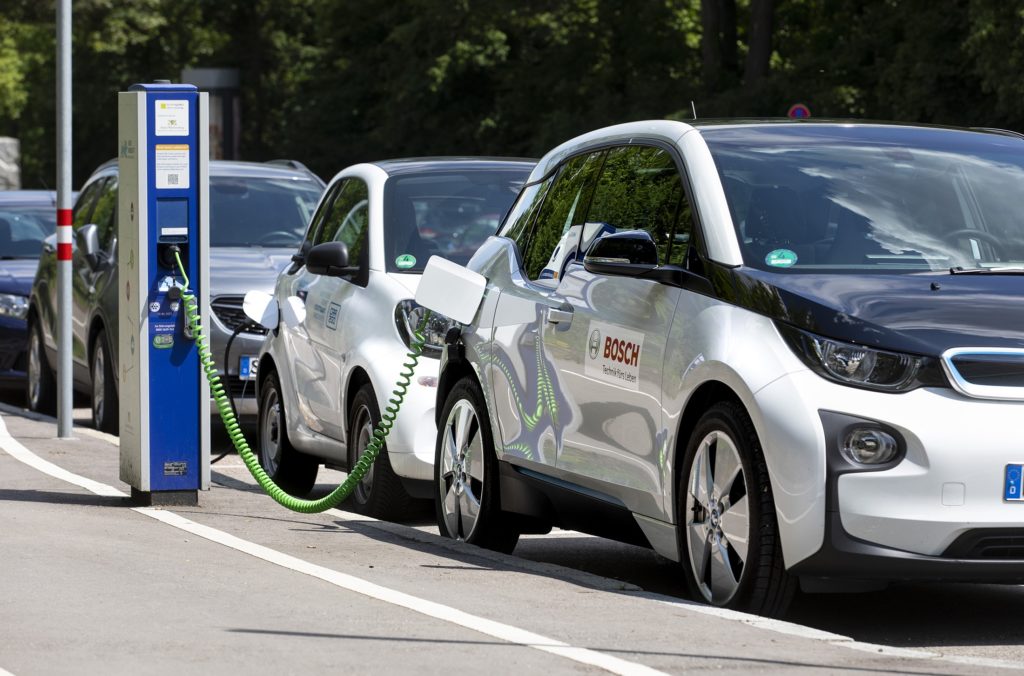According to experts, the average service life of today’s lithium-ion batteries is 8-10 years or between 500 and 1,000 charge cycles. Battery makers usually guarantee mileage of between 100,000 and 160,000 kilometres. But rapid battery charging, high numbers of charge cycles, an overly sporty driving style, and extremely high or low ambient temperatures are all sources of stress for batteries, which makes them age faster.
Bosch’s cloud-based services are designed to recognize – and counter – these stress triggers. All battery-relevant data – e.g. current ambient temperature and charging habits – is first transmitted in real time to the cloud, where machine-learning algorithms evaluate the data.
With these services, Bosch is not only offering a window into the battery’s current status at all times, but enabling a reliable forecast of a battery’s remaining service life and performance to be made for the first time.
Smart software functions in the cloud continually analyze the battery status and take appropriate action to prevent or slow down cell aging. These measures can reduce the wear and tear on the battery, the most expensive component of an electric vehicle, by as much as 20 percent. Real-time data gathered from the vehicle and its surroundings plays a key role here. The cloud services utilize this data to optimize every single recharging process and to provide drivers with tailored driving tips on how to conserve battery power via the dash display. A key feature of the smart software functions is their use of the swarm principle: the algorithms used for analysis evaluate data gathered from an entire fleet, not just from individual vehicles. Swarm intelligence is the key to identifying more of the stress factors for vehicle batteries, and to identifying them more quickly.
The new insights gained into a battery’s current status enable Bosch to also actively protect it against aging. Fully-charged batteries for example age more quickly at particularly high or low ambient temperatures. Bosch’s cloud services thus ensure that batteries are not charged to 100 percent when conditions are too hot or too cold. By reducing the battery charge by only a few percentage points, the battery is protected against inadvertent wear and tear. Data in the cloud will also help improve battery maintenance and repair.
As soon as a battery fault or defect is identified, for example, the driver or fleet operator can be notified. This increases the chances that a battery can be repaired before it becomes irrevocably damaged or stops working altogether. Finally, the cloud services also optimize the recharging process itself. The recharging process which is among the biggest obstacles to creating a mass market for electromobility – harbors the risk that the battery cells permanently lose some of their performance and capacity.
Smart software in the cloud can calculate an individual charge curve for each recharging process, regardless of whether it takes place at home or elsewhere. This means the battery is recharged to the optimum level, helping conserve the cells. Whereas existing apps with charge timers merely allow drivers to time the recharging process so that it is carried out when demand for electricity is low, the Bosch solution goes much further, offering a specially developed recharging process as part of the company’s new battery services. They optimize both fast and slow charging and control electricity and voltage levels during the recharging process, thus prolonging battery life.

